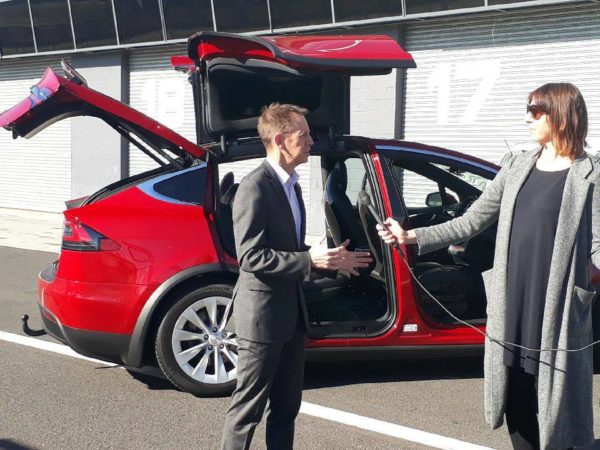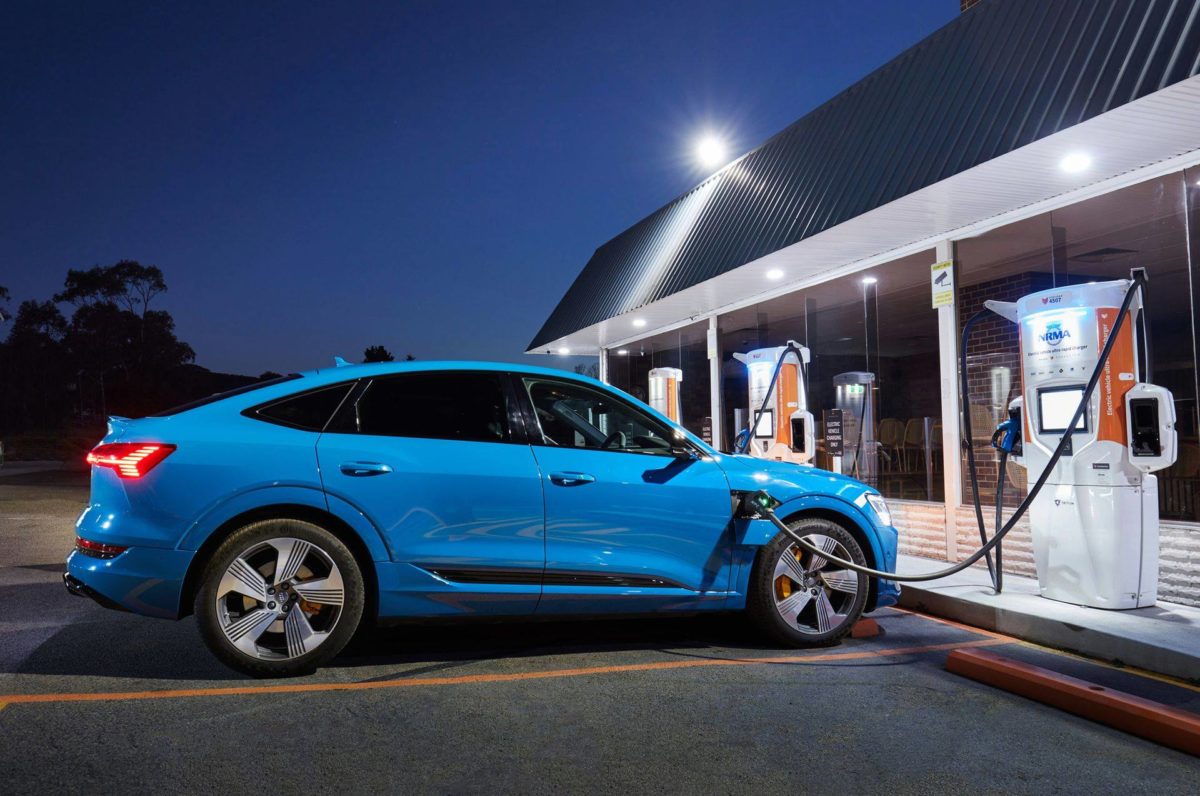The Australian Capital Territory (ACT) government will this week reveal its Zero Emissions Vehicle Strategy, which is expected to set out updated electric vehicle (EV) sales targets for the territory along with plans to phase out the purchase of new fossil fuel-powered internal combustion engine (ICE) vehicles from 2035.
ACT minister for energy and emissions reduction Shane Rattenbury said the phase out will initially apply to new light vehicles, including passenger cars, motorcycles, and small trucks. It will also be backed up by an EV sales target, with between 80 to 90% of new vehicle sales in 2030 to be zero-emission models.
“This target is all about light vehicles,” he said. “Our intent is that from 2035, you will not be able to put a new (petrol light vehicle) on the road. There are electric models available right now that you can replace them with. And we expect more models to become available in the coming years.”
The ACT Zero Emissions Vehicles Strategy 2022-2030 is expected be released in full on Wednesday. It is anticipated the strategy will address what the government has identified as the four key barriers to EV take-up: affordability, infrastructure/range anxiety, availability and supportive government processes.
The policy is expected to include new financial incentives and other programs to encourage people to trade in their ICE vehicles for zero-emission models.

Image: Supplied
Already, the ACT has a number of incentives in place to drive the uptake of EVs, including two years’ free registration for new fully-electric vehicles and fuel-cell EVs and 20% off registration fees for older eligible EVs. It also offers a stamp duty waiver, and access to up to $15,000 towards the cost of an EV up to a cap of $77,565 under the Sustainable Household Scheme zero interest loans.
Greenpeace Australia Pacific senior campaigner Lindsay Soutar said the ACT’s plan to phase out the sale of fossil fuel-powered vehicles paves the road for other states and territories to follow and brings Australia more into line with where the rest of the world is heading, noting several global car manufacturers have already announced their intention to stop producing petrol cars.
“The UK has already committed to phase out internal combustion engine cars by 2030 and Europe recently committed to a phase out by 2035,” she said. “Other Australian states and territories must now follow the lead of the ACT and other jurisdictions around the world.”
Soutar said the move also lays down a marker for the Federal government to address the crucial issue of supply.
“The demand for EVs is clear and the Albanese Government must act to unlock supply by introducing a strong Fuel Efficiency Standard, which would heavily incentivise supply of clean cars, and put Australia on the superhighway to clean transport,” she said.
The ACT’s announcement coincides with the Queensland government confirming plans to extend its EV charging network to a distance of 5,400km – linking up another 10,000 drivers around the state.
Queensland Energy Minister Mick de Brenni said phase three of the Queensland Electric Super Highway rollout will see 24 EV charging sites open in regional and rural locations. This includes further connections along the Queensland/New South Wales border with two charging station locations planned at Goondiwindi and Stanthorpe.
Once complete, it is anticipated phase 3 will enable Queenslanders and tourists to travel across the state and use any of the 55 fast-charging sites along the way.
This content is protected by copyright and may not be reused. If you want to cooperate with us and would like to reuse some of our content, please contact: editors@pv-magazine.com.









2 comments
By submitting this form you agree to pv magazine using your data for the purposes of publishing your comment.
Your personal data will only be disclosed or otherwise transmitted to third parties for the purposes of spam filtering or if this is necessary for technical maintenance of the website. Any other transfer to third parties will not take place unless this is justified on the basis of applicable data protection regulations or if pv magazine is legally obliged to do so.
You may revoke this consent at any time with effect for the future, in which case your personal data will be deleted immediately. Otherwise, your data will be deleted if pv magazine has processed your request or the purpose of data storage is fulfilled.
Further information on data privacy can be found in our Data Protection Policy.